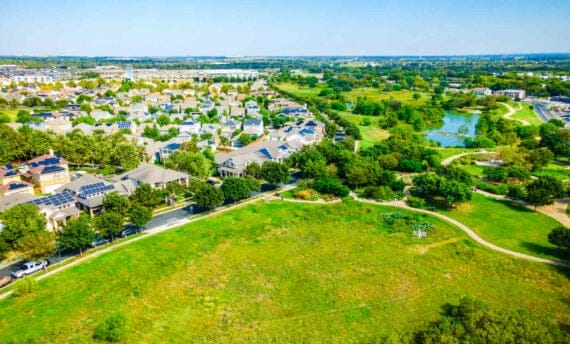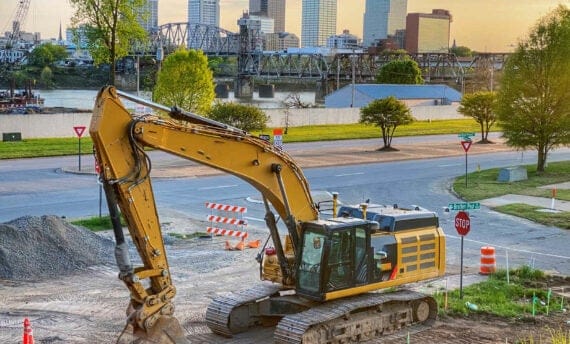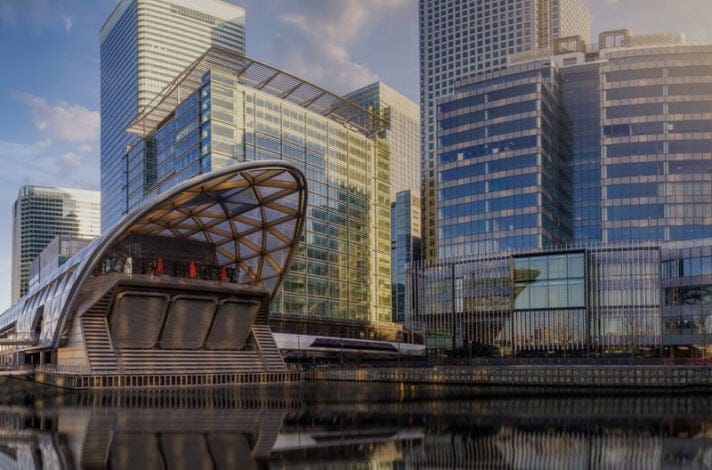Communities around the world are contending with accelerating climate change and finding ways to adapt. Through networks and communities of practice, courses and workshops, research, and publications, the Lincoln Institute identifies and shares promising practices for land-based greenhouse gas mitigation, and adaptation and resilience. With partners, we bring together elected officials, community members, and key planning and policy staff to facilitate the transfer of knowledge, strategies, and promising practices to scale up effective climate solutions.

Climate Resilient Urban Form
Urban areas are responsible for most global GHG emissions. Compact, energy-efficient urban form is necessary to meet the climate goals established in the Paris Agreement. Through research, publications, and capacity building, we promote land use policies that reimagine the existing built environment or “build it right the first time,” enabling inclusive, climate-resilient development pathways that protect critical natural ecosystems.

Financing Climate Action
Publicly driven climate action can increase land values, and a portion of that increase can be shared with the public to pay for the investment itself or additional climate action. We are researching ways to fund urgent climate investments through land-based financing tools and working with partners to provide technical assistance to support on-the-ground implementation. We also evaluate public climate funding sources and emphasize the importance of leveraging both public and private investments to meet climate goals.

Community-led Climate Action
We work with trusted community partners to support community-led planning and decision- making in locales at greatest risk of climate-related impacts. Among these communities are legacy cities dealing with the impacts of climate change in addition to decades of economic disinvestment and the long-term effects of racist planning and zoning policies. Through our work, the Lincoln Institute informs systemic change in policy and practice, and supports civic leaders, policymakers, and practitioners pursuing equitable climate action with innovative scenario planning processes and urban greening strategies.

Balancing Competing Demands for Land
Land is a critical component to addressing the climate crisis, but it is under tremendous pressure from market forces while competing demands—agriculture, habitat, renewable energy, carbon sequestration—are leading to increasing conflicts. The Lincoln Institute is illuminating the impact of these demands on human and natural systems to develop equitable solutions.

Design with Nature Now
We are demonstrating the economic, environmental, and public health benefits of integrating nature more fully into cities, working with ecological systems rather than against them. Design with Nature Now (2019) and Nature and Cities (2016) feature photographs, articles, and essays by leading international architects, landscape architects, city planners, and urban designers.
Storymap: Land-based Climate Solutions from Around the World
 This StoryMap features a growing library of case studies that illustrate the role of land use and policy in mitigating and adapting to climate change. Featured case studies range from the Life Vimine Project in Venice, Italy, to the Watts Rising Transformative Climate Communities Project in Los Angeles.
This StoryMap features a growing library of case studies that illustrate the role of land use and policy in mitigating and adapting to climate change. Featured case studies range from the Life Vimine Project in Venice, Italy, to the Watts Rising Transformative Climate Communities Project in Los Angeles.

Land Lines Magazine: Special Climate Issue
In July 2022, we published a special issue of Land Lines magazine that features articles on the growing practice of community-led relocation, the link between climate action and property value increases, and land as an essential component of climate solutions.

